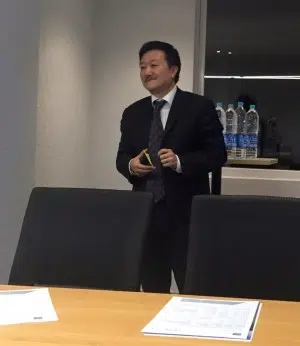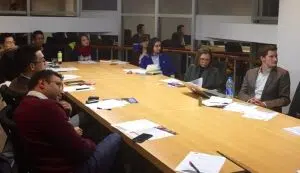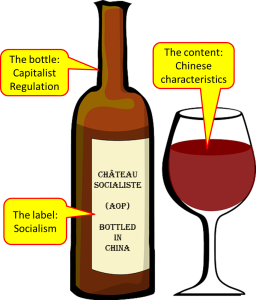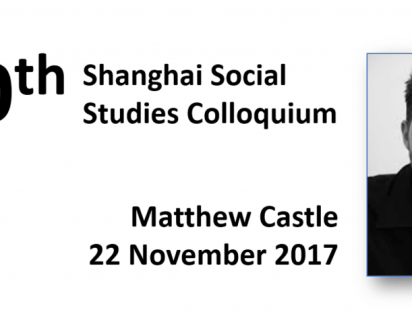On Monday, 9 November 2015, the tenth Shanghai Social Studies Colloquium (SSSC) took place at the Shanghai campus of ESSCA School of Management. The SSSC is an initiative that provides a forum for international and Chinese scholars of various disciplines of the social sciences based in the city of Shanghai and its surroundings. They can present and discuss their research, so as to exchange critique and research ideas, improve their research output, network and socialise, with a view to developing collaborative research projects.

Wei ZHAO, Professor of International Management at ESSCA
The tenth meeting welcomed researchers from a variety of institutions including New York University and East China Normal University as well as practitioners from the corporate world.
Prof. Dr. Wei ZHAO, Associate Professor of International Management at ESSCA School of Management entitled his paper ‘What is a Market Economy with Chinese Characteristics?’ At the beginning of his talk, he pointed out that the term ‘Capitalism with Chinese Characteristics’ is a bias. In Chinese universities it is encouraged not to use the term ‘capitalism’ to describe China’s economy. The official term is ‘Socialist Market Economy with Chinese Characteristics’. Therefore, it must be first clarified what a market economy is. The ideal type of a free market economy where the market determines prices of goods and services with the free interplay of supply and demand is not applicable to China’s ‘market economy’.
He called an economy independent of government and political institutions as a ‘stark utopia’. His talk was an attempt to provide a theoretical framework that could help to better understand China’s economy. However, the purpose of his approach is for practical and pragmatic use. He stressed the importance of the interplay between the economy, state and society. The Chinese economy is an economy of the government, by the government, and for the government. No wonder the famous economist LANG Xianping called this system a ‘government economy’.

The Chinese society has embedded itself in the Chinese market economy. The cultural characteristics are thereby amplifying the utilitarianism and pragmatism. The middle class may have economic and business implications but it is never a social and political reality. The Marxist class struggle might be out-dated. The middle class is likely not to play such an important role as initially foreseen.

The presentation was followed by a lively discussion in the plenary. Thereafter, the participants continued their exchange and during an informal networking reception with dinner and drinks.
All papers and the authors’ profiles of the tenth and of previous SSSCs can be read and downloaded under shanghai-review.org.
The SSSC is an on-going event and takes place approximately every eight weeks.
Date & topic of the next Activity of ESSCA School of Management Shanghai :
Researchers’ Night 4.0 – ‘From one end of the SILK ROAD to the other’ – Euraxess Links China, Think in China and ESSCA School of Management, Shanghai are delighted to invite you to the 4th edition of the Researchers’ Night in Shanghai.
Kaiba Tap House 169, Jianguo Zhong Lu at 18.30h CST on Thursday, 26 November 2015
黄浦区建国中路169号 - 2015年11月26日 星期四晚上 6:30pm.




